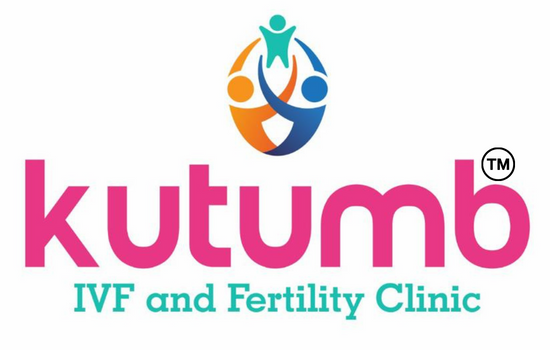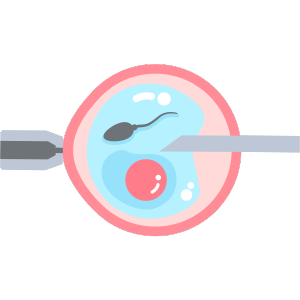 What is ICSI?
What is ICSI?
Facing challenges with male infertility can be daunting for couples dreaming of starting a family. Fortunately, advanced techniques like Intracytoplasmic Sperm Injection (ICSI) offer hope and solutions. Administered by the expertise of the best gynecologist in Vizag, ICSI involves the direct injection of a single sperm into an egg using a delicate needle under a microscope. This precise method overcomes issues like low sperm count, poor motility, or abnormal morphology, ensuring fertilization even in compromised sperm quality scenarios. For couples grappling with male factor infertility, ICSI stands as a promising pathway towards realizing their parenthood aspirations.
 What is IVF?
What is IVF?
IVF, or In Vitro Fertilization, is a fertility treatment where eggs are retrieved from a woman’s ovaries and fertilized with sperm in a laboratory dish. This process is commonly used for couples struggling with infertility due to various reasons such as blocked fallopian tubes, low sperm count, ovulation disorders, or unexplained infertility.
The process of ICSI is similar to IVF but with the addition of the sperm injection step:
Ovarian Stimulation: The woman undergoes hormonal stimulation to produce multiple mature eggs.
Egg Retrieval: Eggs are retrieved from the ovaries using a minimally invasive procedure.
Sperm Collection: The male partner provides a sperm sample, which is processed to obtain the best-quality sperm.
ICSI: A single sperm is injected directly into each mature egg to facilitate fertilization.
Embryo Culture and Transfer: Fertilized eggs (embryos) are cultured in the laboratory, and healthy embryos are transferred to the woman’s uterus for potential implantation and pregnancy.
ICSI has significantly improved the success rates of IVF for couples dealing with male infertility issues, making it a valuable tool in assisted reproductive techniques.
Comparing IVF and ICSI Success Rates
IVF involves fertilizing an egg with sperm outside the body and then implanting the resulting embryo into the uterus. On the other hand, ICSI is a more specialized form of IVF where a single sperm is directly injected into an egg to facilitate fertilization. Here’s a comparative analysis of their success rates:
Overall Success Rates: Studies have shown that IVF success rates typically range from 30% to 40% per cycle, depending on various factors such as the woman’s age, reproductive health, and the clinic’s expertise. In contrast, ICSI success rates are slightly higher, often reaching 40% to 50% per cycle. However, these success rates can vary widely between individuals and clinics.
Male Factor Infertility: ICSI is particularly beneficial for couples dealing with male factor infertility, where sperm quality or quantity is a concern. Due to the direct injection of sperm into the egg, ICSI can overcome certain fertility issues that may hinder conventional IVF success.
Complex Cases: In cases where previous IVF attempts have failed or when there are challenges such as low egg quality or fertilization issues, ICSI may offer a higher chance of success. Its precision in delivering sperm to the egg can be advantageous in overcoming these hurdles.
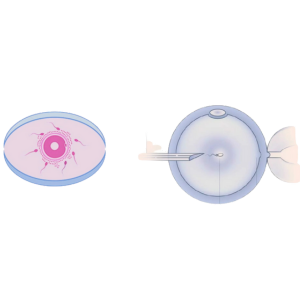 Factors Influencing IVF and ICSI Success
Factors Influencing IVF and ICSI Success
Several factors play a crucial role in determining the success of both IVF and ICSI treatments, especially when considering the best IVF treatment in Vizag. Understanding these factors can significantly help individuals and couples optimize their chances of a successful outcome.
Age of the Woman: Advanced maternal age is often associated with lower success rates in both IVF and ICSI. Women under 35 generally have higher success rates compared to older women, as ovarian reserve and egg quality decline with age.
Reproductive Health: The overall reproductive health of both partners, including factors like hormone levels, uterine health, and sperm quality, significantly influences treatment success. Addressing any underlying reproductive issues before undergoing ART can improve outcomes.
Embryo Quality: The quality of embryos generated during IVF or ICSI plays a critical role in success. Embryos with good morphology and genetic health have a higher chance of implantation and development, leading to a successful pregnancy.
Clinic Expertise: The experience and expertise of the fertility clinic and its healthcare team can impact success rates. Choosing a reputable clinic with a track record of successful ART outcomes can enhance the chances of a positive result.
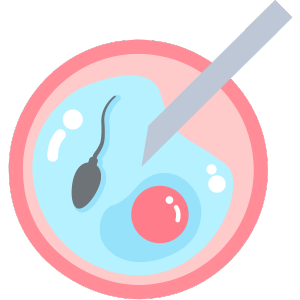 Advantages and Disadvantages of ICSI
Advantages and Disadvantages of ICSI
Advantages of ICSI:
Increased Fertilization Rate: ICSI has a higher fertilization rate compared to traditional IVF, making it beneficial for couples with low sperm count or poor sperm motility.
Overcomes Male Infertility Issues: ICSI can overcome various male infertility issues such as low sperm count, abnormal sperm morphology, and poor sperm motility, allowing couples with male factor infertility to achieve pregnancy.
Allows for Genetic Testing: ICSI allows for preimplantation genetic testing (PGT), which can screen embryos for genetic abnormalities before implantation, reducing the risk of passing genetic disorders to the offspring.
Suitable for Previously Failed IVF Attempts: Couples who have experienced failed IVF cycles may benefit from ICSI as it can improve the chances of successful fertilization and embryo development.
Disadvantages of ICSI:
Potential Risk of Genetic Abnormalities: There is a slight increase in the risk of genetic abnormalities in embryos conceived through ICSI compared to natural conception or traditional IVF.
Cost: ICSI is generally more expensive than traditional IVF due to the additional procedures involved, such as sperm selection and injection.
Not Suitable for All Cases: While ICSI is beneficial for male factor infertility, it may not be necessary or suitable for couples with other infertility issues such as egg quality or uterine factors.
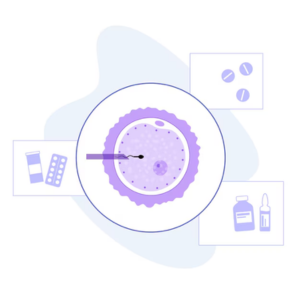 Considerations for Choosing IVF or ICSI
Considerations for Choosing IVF or ICSI
Factors to Consider When Choosing IVF:
Female Infertility Factors: If the infertility is primarily due to factors related to the female partner, such as ovulation disorders or tubal blockages, traditional IVF may be the preferred option.
Cost Considerations: For couples looking for a more cost-effective fertility treatment option and who do not have severe male factor infertility, traditional IVF may be a suitable choice.
Previous Fertility History: Couples with a history of successful fertilization and embryo development using traditional IVF may continue with this method for subsequent cycles.
Factors to Consider When Choosing ICSI:
Male Factor Infertility: If the male partner has low sperm count, poor sperm motility, or abnormal sperm morphology, ICSI may be recommended to improve fertilization rates.
Previous IVF Failures: Couples who have experienced failed IVF attempts or low fertilization rates in previous cycles may benefit from switching to ICSI for better chances of successful fertilization.
Genetic Testing: If genetic screening or testing of embryos is desired, ICSI may be preferred as it allows for PGT, reducing the risk of passing genetic disorders to the offspring.
Conclusion
In conclusion, while both IntraCytoplasmic Sperm Injection (ICSI) and In Vitro Fertilization (IVF) are effective assisted reproductive technologies, their success rates can vary depending on individual factors such as the quality of eggs and sperm, the expertise of the fertility clinic, and the specific fertility issues being addressed. It’s essential to consult with a reputable fertility center like the Best IVF Center in Vizag to determine the most suitable treatment option for your specific situation.
